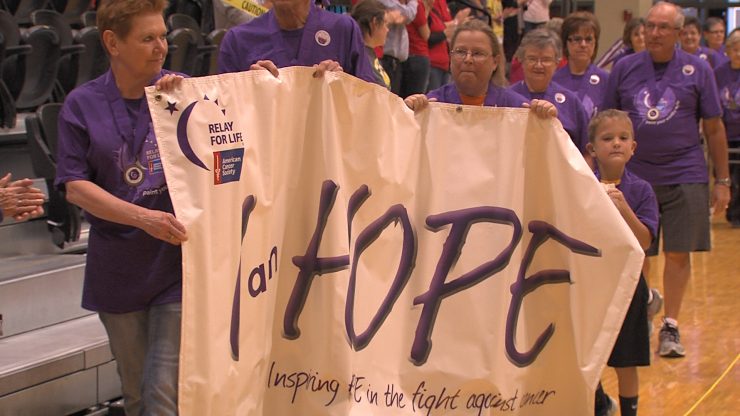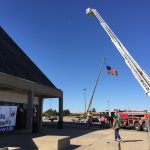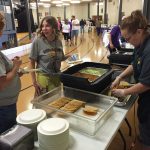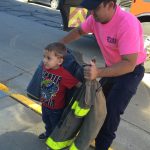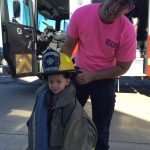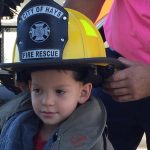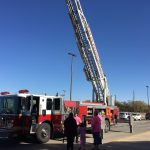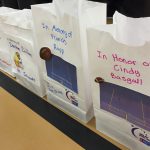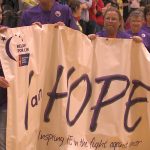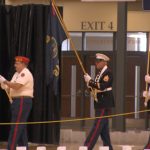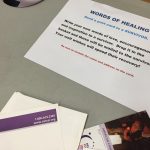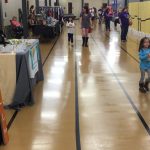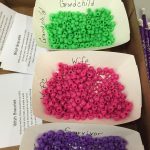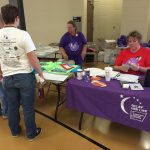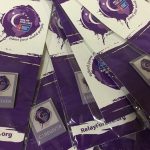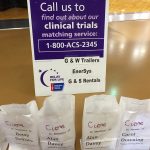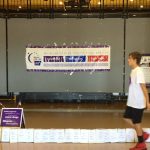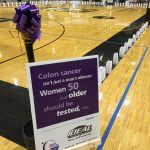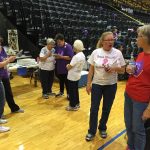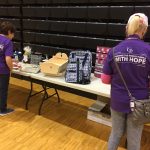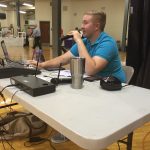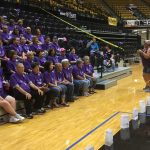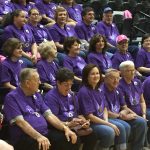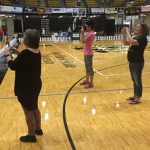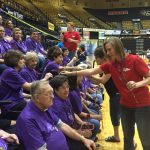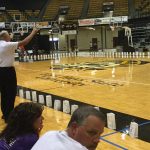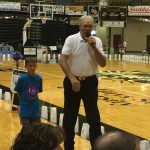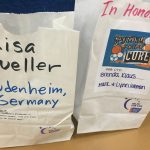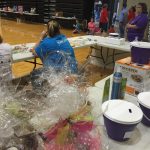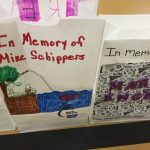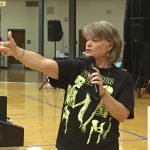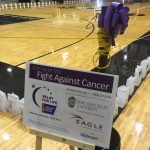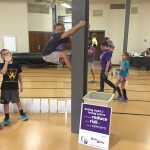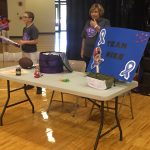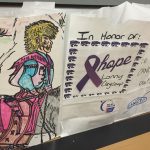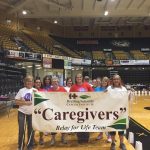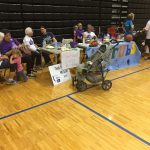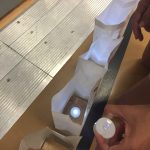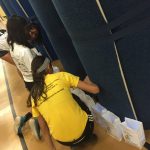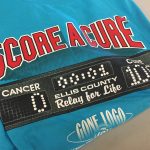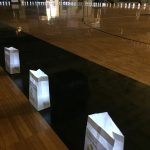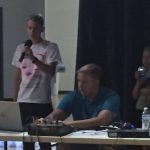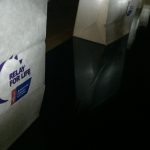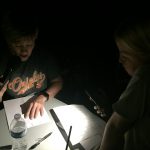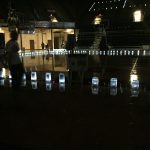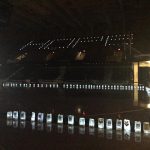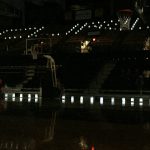
By BECKY KISER
Hays Post
Dr. Tracy Coe likes to compare cancer research to the childhood game of hopscotch.
Saturday afternoon the medical oncologist/hematologist at HaysMed Dreiling/Schmidt Cancer Center used a big blue piece of chalk to draw an imaginary hopscotch outline on the floor of the basketball arena at Fort Hays State University Gross Memorial Coliseum, site of the 2016 Ellis County Relay For Life.
“In hopscotch you’re always moving forward; you’re never moving back. Sometimes we move forward by one box and sometimes we move forward two boxes.” Coe illustrated as she talked, jumping forward towards to the crowed, with her microphone in hand.
“Cancer research is exactly like that right now. We have never looked back. We are moving forward, and the speed of our movement forward is astounding these days.”
Coe briefly outlined the major drug protocols that have been in use since the 1960s.
“Some extraordinary things happened in the 1960s, including tamoxifen for breast cancer–technically our very first targeted treatment–and it’s still in use today.
“Fast forward a little bit on our hopscotch,” Coe said as she jumped closer to the audience, “and in the 1970s, a brilliant researcher discovers several chemotherapies put together cure most testicular cancers.
“In the ’80s, more chemotherapy drugs are being discovered and we have more breast cancer hormones coming down the pike, so we don’t have to take women’s ovaries out for breast cancer any more.
“Move into the 1990s, and in 1992 we have the introduction of our first nausea medicine that literally shuts off the vomit center of the brain. It was a huge breakthrough to take care of patients’ nausea when they were receiving chemotherapy medicines. In 1996 we have our first intravenous-targeted treatment for lymphomas. It’s very much like a rifle targeted at a certain thing you are shooting at. These are specifically and deliberately designed in our research labs.
“In the early 2000s we have anti-body therapy–not targeted at the receptor of the cell but targeted at the DNA. Cancer puts up a fence that our antibodies can’t get through. We also have the ability in the last decade of getting past that fence.
“We’re not using poisons any more. These are targeted treatments that work in astounding ways.
“In the past 13 months, we’ve had 11 new drugs approved by the FDA (Federal Drug Administration) that we now use in our Cancer Center. These are mind-boggling approaches to curing cancers or putting them into remission for so long that it’s a chronic illness very much like diabetes–something that we’re controlling with these medicines that eventually, is not going to take that patient’s life any more.”
Coe thanked the cancer patients for the privilege of working with and for them.
“The money that we raise here at Relay For Life is curing cancer on such an astounding level and we are reaping the benefits here at the Cancer Center,” Coe concluded to enthusiastic applause.

At the end of the six-hour event with the arena still dark following the luminary ceremony, RFL co-chair Deb Alvarez, a nurse at the Dreiling/Schmidt Cancer Center, announced donors raised $34,409.64 for cancer research overseen by the American Cancer Society (ACS).
The Insurance Planning team raised the most money–$7,357, of which employee Lonny Claycamp–a cancer survivor–raised $4,055.
